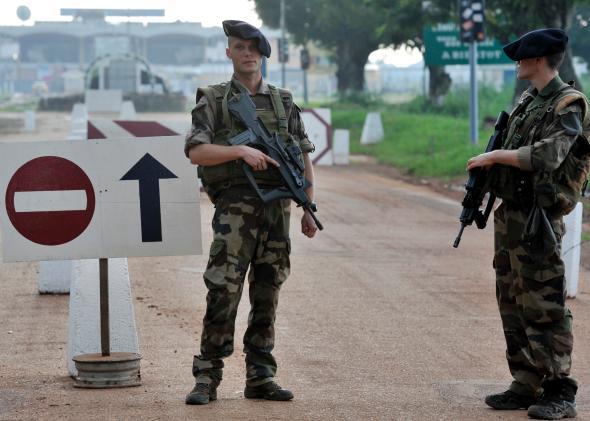The ongoing violence in the Central African Republic is one of the world’s more unjustly ignored crises at the moment. The fighting, much of it taking place between Muslim and Christian militias, which has worsened since rebel groups ousted President Francois Boizize in March, has displaced as many as 400,000 people—almost 10 percent of the population—and is thought to involve more than 3,500 child soldiers. The U.N. says it has no idea how many have been killed.
The violence also seems unlikely to be contained within the countries borders. Bordering countries including Sudan, South Sudan, Chad, and the Democratic Republic of Congo, the chaos in the CAR adds yet another combustible element to an extremely unstable region. Foreign militant groups including Nigeria’s Boko Haram may already be operating there.
Despite increasingly drastic warnings and pleas from the U.N., the only country outside the region where the situation in the CAR seems to be a policy priority is former colonial power France. The French government announced today that it deploying 1,000 troops to bolster the 400 is already has on the ground in the country. The French will bolster a 2,500 regional peacekeeping force which is due to be increased to 3,600.
Defense Minister Jean-Yves Le Drian insisted that it would be a short deployment and the French would be merely acting in a support role to the African troops, but all the same, the degree to which the French government has embraced humanitarian interventionism in recent years has been striking.
Since 2011, France has launched peacekeeping operations in the Ivory Coast and Mali, cajoled an international coalition into an intervention in Libya and was briefly leading the charge for an attack on Syria’s chemical weapons program. France also reportedly took the hardest stance during the recent nuclear negotiations with Iran, nearly scuttling a deal entirely, but earning praise from American congressional hawks and Israel.
It can sometimes seem, these days, like Paris has become the last bastion of the humanitarian hawks. The aggressive foreign policy of the Holland administration seems to be popular with the French public in contrast with the dismal unpopularity of his domestic policies.
But with 2,800 troops still in Mali, and deep austerity cuts affecting the country’s military, it’s not quite clear how much of a global footprint France can afford. Or how long the French public will be interested in the country playing the role of global policier.
